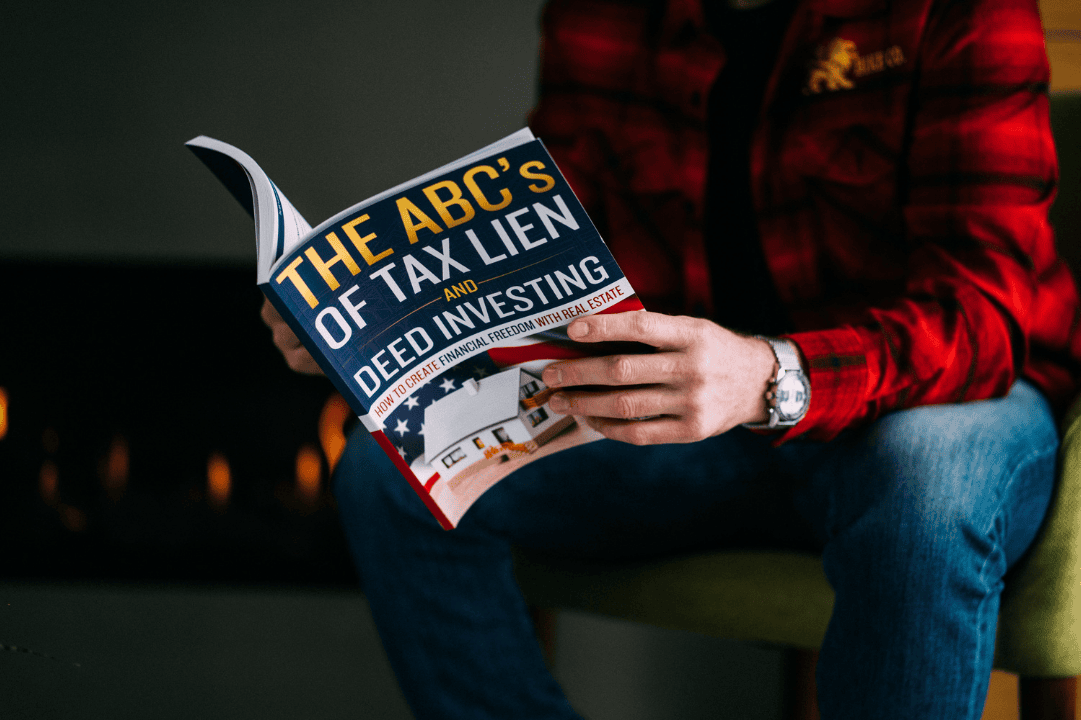Last Updated on August 26, 2025

What are the Common Mistakes Tax Lien and Deed Investors Make?
Many investors like tax liens and deeds because they can bring high returns, but they often fail by thinking it’s easier than it is. To succeed, you need to know the state laws, research the properties, and plan for risks and costs. This guide shows the common mistakes and gives simple steps to help you do well.
What are tax liens & tax deeds?
- Tax lien: a legal claim a local government places on a property when the owner fails to pay property taxes; investors purchase the lien and earn interest when the owner redeems it.
- Tax deed: In some states, the government forecloses on the property and sells the deed directly to investors.
- Lien vs. deed states: some jurisdictions sell liens, others sell deeds, and some offer both.
- Redemption period: after a lien sale, owners typically have time to pay delinquent taxes plus interest and reclaim their property.
Why do many investors fail with tax liens & deeds?
1. Lack of understanding of the process
Beginners often think tax sale investing is just buying and selling properties with unpaid taxes. But state laws control how auctions work, how long owners can pay back, and what paperwork is needed.
New investors who think they already understand the process usually miss details, and that can cost them money.
2. Inadequate research on the property (The “Product”)
Before bidding, it’s crucial to research tax lien properties thoroughly, check the property’s size, zoning, market value and any environmental issues
- Some auction properties are tiny strips of land, landlocked lots or sites with environmental issues. Without due diligence, you might end up owning land that cannot be developed or sold.
- Properties with delinquent taxes may be poorly maintained, and the owner can let them deteriorate during the redemption period.
- Investors are advised not to purchase liens on properties with environmental damage.
- Tax‑sale experts emphasize that research equals results.
To avoid these mistakes, verify the property’s size, zoning, condition and market value. Check county records, use online valuation tools and visit the property where possible.
3. Unrealistic expectations & lack of personal discipline (The “People” factor)
Many new investors underestimate the effort required and expect overnight riches. Tax‑sale investing is not a lazy person’s business. It requires learning, setting realistic goals and sticking to a budget.
Common pitfalls include:
- Impatience: rushing into auctions without mastering the basics.
- Shiny object syndrome: focusing on attractive properties without proper research.
- Ego & emotional bidding: Overbidding due to competition can wipe out expected returns.
4. Not investing in the right place
Some states give high interest rates on tax liens or redeemable deeds, but they also have strict rules or hidden risks. Choosing a state solely based on interest rate can backfire. Always consider:
- Investor‑friendly laws,
- Redemption periods & bidding procedures,
- Additional obligations, such as municipal liens or homeowners’ association dues.
5. Neglecting local laws & deadlines
One of the biggest mistakes tax lien investors make is not understanding local redemption periods and auction procedures. Property tax laws vary by county. Failure to learn them can lead to legal or financial trouble. Investors must understand:
- Redemption periods and deadlines for tax liens and deeds,
- Auction formats (online vs. in‑person) and bid requirements,
- Payment deadlines after winning a bid; missing them can result in penalties or forfeiture.
6. Failing to claim deductions & plan taxes
Property tax investors often forget they can deduct costs like buying the property, repairs, travel, and training. Planning your taxes well, like choosing the right time to buy, keeping track of expenses, and getting advice from a tax expert, helps protect your profits.
7. Poor assessment of property value
Another common mistake is relying on outdated or incorrect assessments, which can lead to overpaying or buying low‑value assets. Always cross‑check county records, inspect the property and compare market values.
8. Ignoring additional risks
Prospective buyers should be aware of tax deed investing risks, such as competition from institutional bidders and liens that expire.
- Tax liens can expire after the redemption period.
- Competition is fierce: banks and hedge funds often outbid individual investors.
- Government or legal mistakes can trigger challenges.
- Changing laws and politics may affect your rights.
- Bankruptcy variations can delay or reduce your payments.
If you want to know how to invest in tax deeds safely, keep in mind that every state has different rules, and some may make you take over the property sooner than you thought.
Frequently asked questions (FAQ)
A tax lien lets an investor claim a property when taxes are not paid, and the investor earns interest when the owner pays back. A tax deed is when the property itself is sold, and the highest bidder becomes the new owner.
Most of the time, investors don’t end up taking the property. The owner and the lien holder usually agree on a way to pay back the debt. Taking the property through foreclosure is the last option, and it can bring extra debts or legal problems.
Make sure you check the property details, local laws, and the market. Look at county records, how long the owner has to pay back (redemption period), if there are other debts on the property, and any possible environmental problems. If you can, go see the property in person.
Risks include expiring liens, institutional competition, government errors, legal changes and owners filing bankruptcy.
Conclusion
Tax lien and deed investing can be highly rewarding when approached with knowledge, patience and a well‑researched strategy. People usually fail because they make common mistakes like not knowing the rules, not doing enough research, expecting quick results, or ignoring local laws.
If you take time to learn the state and county rules, check properties carefully, set goals you can reach, and follow proven steps, you’ll give yourself a much better chance to succeed.
If you’re serious about investing and need guidance, consider consulting us or enrolling in our training programs. Proper education and mentorship are invaluable and can prevent costly mistakes.
Talk soon,
Dustin









